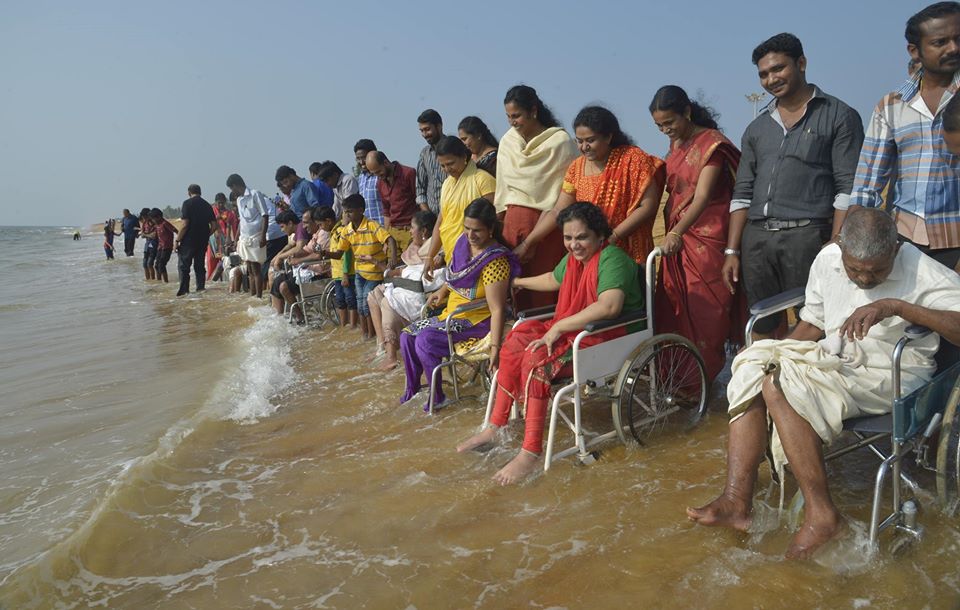We believe that Community engagement is the essence of Palliative Care and that health for all is health with all, and that for it to be sustainable, it must be owned by the community.
To this end, we initiated the following programmes aimed at Community engagement.
- Compassionate Communities
- SANS Pain – Students’ Palliative Care initiative
- Unarv
- Volunteer programme
We also conduct events like ‘Patients Get together’ , ‘Life and Death with Dignitea’, food festivals, flash mobs, exhibitions and sales of patient-made products over the course of the year, as well as on occasions like World Hospice and Palliative Care Day and Elisabeth Kubler Ross’s birthday.
Over 150 active volunteers have been catalysed to promote awareness and build demand at the individual and household level in Trivandrum. We also catalyse the panchayats and volunteers within our link centers.
Nationally, members from Pallium India have addressed members of civil society at various events like TEDx talks, Rotary meets, colleges and so on.
For more information about our community work in Trivandrum, kindly contact : Ms Abhirami: +91 81138 27540
Coastal Students’ Cultural Forum
The South-Indian state of Kerala has a history of community participation in palliative care with an established network of palliative care centres in which compassionate people in each neighbourhood join hands to care for the ailing, the disabled and the dying. This experience proved to be of great value to us when dealing with the Covid pandemic in 2020.
The coastal belt in the city of Trivandrum (where we have the head-quarters of Pallium India) has overcrowding, poverty and rapid spread of Covid-19. In August coastal areas in the city and suburbs were named “critical containment zones” and cordoned off so that ailing people and families there had no income, no access to healthcare and social unrest.
Pallium India responded to this with engaging the local community. Pallium India’s volunteer Sumitha got us connected to a student-activists’ group in the area, the “Coastal Students’ Cultural Forum” to whom we explained the relevance and need of palliative care and recruited volunteers. We gave basic training to volunteers who could go around within their area identifying the needy, distributing medicines, supplies and food kits. They identified one nurse living in the locality to whom we gave a temporary appointment and palliative care training. She could now go round within the critical containment zone offering essential services like change of urinary catheters, wound care and triage for assessing need for inpatient care. The volunteers and nurse were supported by Pallium India’s telephone helpline and telemedicine unit. When essential, patients were brought out of the critical containment zone to our inpatient and treated under quarantine.
This experience convinces us of the value of the exhortation of the Astana Declaration of 2018 that healthcare for all has to be healthcare “with” all, and that the community needs to be engaged in designing and controlling health systems.



